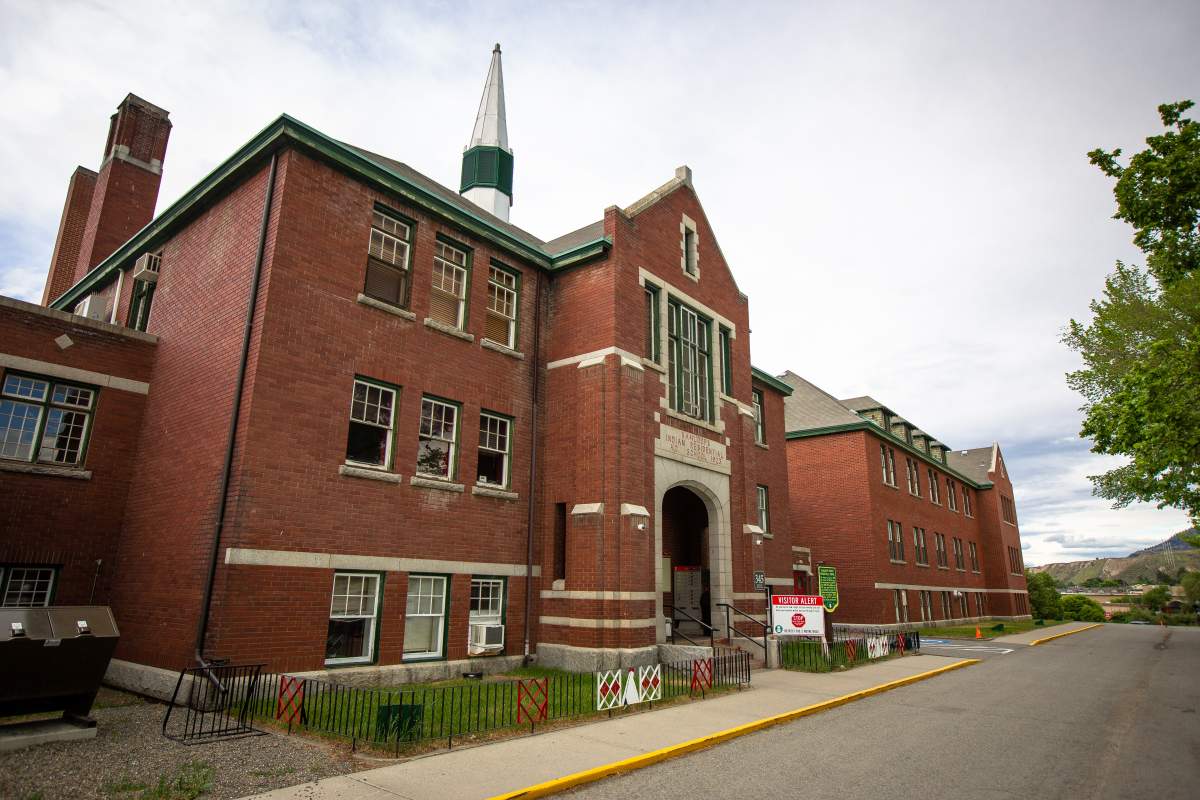Warning: Some of the details in this story may be disturbing to some readers. Discretion is advised.

Saa Hiil Thut said it took years to heal and find peace after he graduated from the Kamloops Indian Residential School in 1968.
A member of the St’át’imc First Nation in B.C.’s Interior, Thut said over the years, he has suffered from many nightmares about his time spent there.

“There’s many documented stories. Mine’s not hardly any different,” he told Global News.
“We were hungry, we were afraid. It was a para-military existence. Everything had to be just so. If it wasn’t, you would be punished.”
Thut said he experienced physical, mental and spiritual abuse at the school.
“It took me 14 years after I left — I became an addict, an alcoholic — to finally face those events and get them out of my system. My feelings today are for the ones who did not find the healing road.”

Last week, the Tk’emlúps te Secwépemc announced the discovery of the remains of 215 children after ground-penetrating radar confirmed what members had long said about the former school, which had been the largest institution of its kind in Canada.
The school was operated mostly under a Catholic order called the Oblates of Mary Immaculate, founded in 1816.

Get breaking National news
It was in operation until 1969 when it was taken over by the federal government and then used as a day school until 1978.
Thut, who now lives in Brandon, Man., told Global News he remembers walking those grounds every day and feels “incredible sadness” about the news of the discovery.
“The big sadness, of course, is the families that (the children) come from,” he said. “The ones who never saw their child again, who were never told, basically, what happened.”

The Catholic Church has so far refused to issue an official apology for its role in residential schools, even when Prime Minister Justin Trudeau asked Pope Francis during a visit to the Vatican in 2017.
“They were monsters that did this,” Thut said. “To bury children as young as three years old in an unmarked grave. That’s the true sign of a monster.”
When the government and organizations take responsibility for what happened, he said, that is when true healing can begin.
“My concern is the survivors. Many have not had a chance to heal from this experience.”
It is believed enrolment at the school peaked at about 500 children in the 1950s.
But little is still known about daily life there.
“The food was atrocious,” he said. “I come from a good family. They fed me deer meat, fish, good food. When I got there, I could barely eat what was on my plate.
“All of the things that people do not know because they weren’t there.”

On Monday, B.C. Premier John Horgan said it is everyone’s responsibility to face all parts of the province’s history “head-on.”
“Survivors of the residential school atrocities live it every day. Their children are also living it, and their grandchildren are living it. This is not something that happened in the past. It is something that is going on right now, and the events in Kamloops over the weekend bring that home graphically to all British Columbians, all Canadians and, indeed, the international community.”
Thut said he would like to see this gruesome discovery become a catalyst for change.
“One of the things that upsets me is when people say, ‘That’s history, get over it, turn the page.’ And I would say I wanted to. I wanted to get over it. I didn’t want to live in depression and anger and fear. That’s not a good place to live.”

One of the best things society can do is to listen and then ask how everyone can move forward together, he said.
He said he wants government and churches to make statements of accountability and develop a plan of how change is going to happen.
“All meaningful change for every human being comes from within.”
Anyone experiencing pain or distress as a result of their residential school experience can access this 24-hour, toll-free and confidential National Indian Residential School Crisis Line at 1-866-925-4419.









Comments